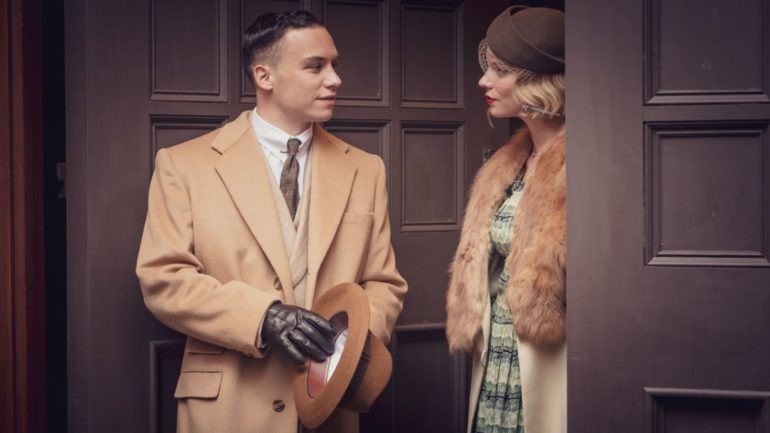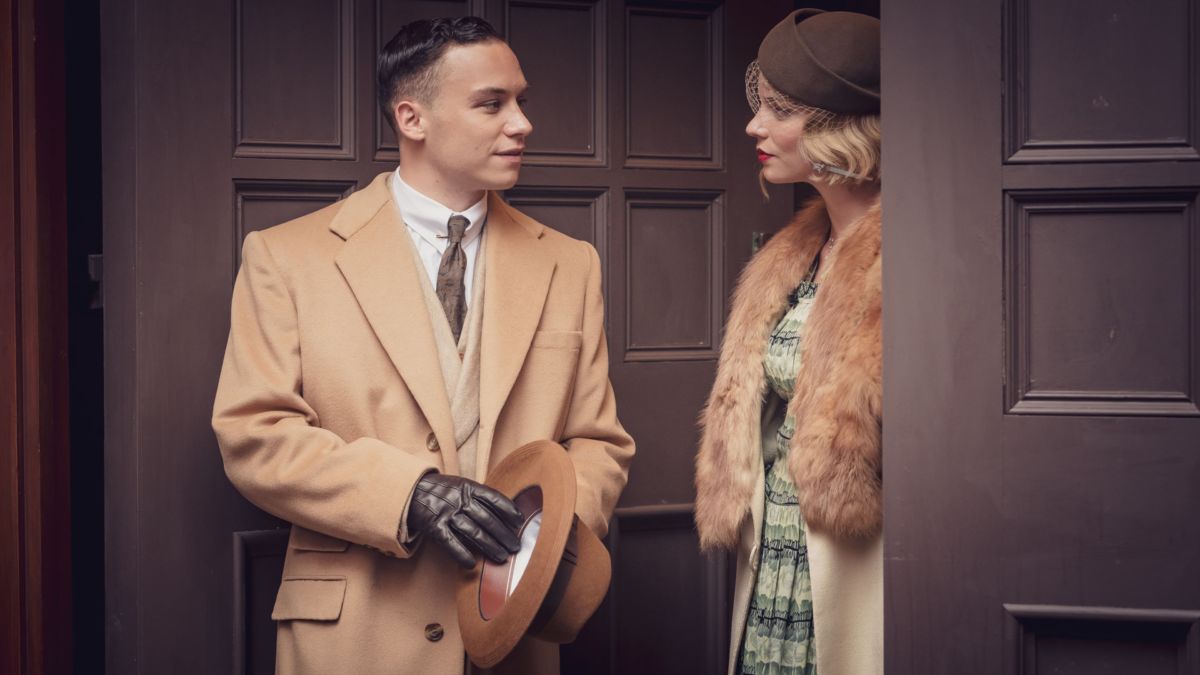There is someone coming for Tommy’s throne; the problem is, we don’t know who it is. Is it Michael, who was caught in a compromising position back in Belfast? It is interesting to see how Polly doesn’t leap to Michael’s defense like she usually would, heading to the station with Arthur in tow to ascertain if there truly is a betrayal. Michael’s rage at being greeted in true Peaky fashion is due to the lack of cordiality they show his new wife, rather than possessing any anger for his own treatment.
Initially, I reserved judgement on Anya Taylor-Joy’s character (Gina Gray), since most of her appearance in the previous episode involved her passed out on the floor. Now it is abundantly clear that she is manipulative and definitely has an agenda regarding her relationship with Michael. Michael mentions that he had the desire to cut ties and run off to do the pictures, but Gina cajoled him into remaining with the family. Does her appearance in their lives have anything to do with the Billy Boys? Fans seem to think she’s one of them, and while that is a possibility, we will have to wait and see if her motives are self-driven or due to political agendas.
Taylor-Joy does that smirking sneakiness so well, you instantly know she’s up to no good – unless you’re Michael of course. I’m not even sure I believe she’s really pregnant, but if she is, then it probably was a premeditated decision and not an accident. Even though she only has brief moments in the episode, she communicates so much with her facial expressions. I look forward to more sustained time with her character in future episodes.
While Michael is in a newly wedded situation, the other Peaky men are having domestic conflicts on top of their issues with the business. Arthur and Linda are at constant loggerheads, and Lizzie is perpetually frustrated with Tommy. I hate to say this, but these domestic spaces simply don’t interest me in a show like Peaky Blinders.
It is laughable really how both Linda and Lizzie write letters to their gangster husbands (couples’ therapy in the 1920s, how progressive), trying to get them to understand their feelings and emotions. This is not to say that they shouldn’t demand more of their husbands, but their discontentment with the business having to regress into criminal activities again is not really the fault of Tommy and Arthur, though this feels more like Lizzie’s issue than Linda’s.
Despite her qualms, she still questions Tommy on whether there will be any of his estate left for her to inherit should he die by his own hand or the hand of someone else. Tommy’s harsh comment that he still pays her in his head when they have sex is cruel but hits home the idea that money has always governed the nature of their relationship.
Yes there is some sentiment, but let’s not kid ourselves that there is anything akin to love here. There is such a contrast painted here of Tommy’s life with Grace and his life with Lizzie. With Grace, Tommy’s participation in the domestic areas was natural and desired. He wanted to come home to Grace and tend to their child – it was a space of peace and respite. It is clear Tommy still carries a torch for Grace, especially given her ghostly appearance in the previous episode.
Now, we see Tommy as more of a spectator in his familial life, visually presented through the family’s celebration of Ruby’s birthday. Initially we think that Tommy isn’t there, but later on as the camera shifts and the characters move, we realise that he is present; as always he is just on the outside of things.
In the previous episode, Charlie exclaimed that Tommy isn’t God, and this becomes abundantly clear in the themes the episode plays up. The episode firstly cements that his power is in a tenuous state, with the uncertainty that is the pair of Michael and Gina and Tommy’s dream of a black cat, which indicates a betrayer in the midst. There is once again a reversal of characterization between Polly and Tommy, and it seems like it’s Tommy’s turn this season to feel uncertain and paranoid, with Polly as cool as a cucumber through it all. We see a consistent motif of the crucifixion as well this episode: we begin with a dummy on the cross and a trap laid out for Tommy, and we end the episode with Bonnie on the cross.
I don’t know how believable it is that a boxer like Bonnie can be overwhelmed so completely by the Billy Boys. There is absolutely no fight and he goes down having barely uttered any lines this season. Charlie’s proximity to these two situations ties in very nicely with the concept of the crucifixion, which is the son of God dying on the cross to save us from our sins. How many sons have to be sacrificed in Tommy’s name, or for the sake of Peaky business? There is no salvation here, just the bleakness of Tommy slowly losing control of everything around him. This is exemplified through how he was unable to settle the situation with Aberama Gold and his grief (also desire for revenge), with Lizzie coming out with a gun to assert control.
We see this shaky ground for Tommy in politics as well, through the figure of Mosley, played fantastically by Sam Claflin. He is magnificent to watch, with a seething menace, offering a much more compelling antagonist than Campbell from previous seasons. While I loathed Campbell, Mosley is at least admirable in his villainy; I can’t believe I am saying this about a character who is the head of the fascist movement. It’s nice to see Tommy refer to Ada as his adviser in politics, especially since it is in keeping with her characterisation from past seasons.
‘Black Cats’ is an excellent follow-up to ‘Black Tuesday’, and as usual the show layers themes and has a tight hold on characterisation. Hopefully the next episode brings more Peaky business and less romantic quarrels.
Some of the coverage you find on Cultured Vultures contains affiliate links, which provide us with small commissions based on purchases made from visiting our site.



